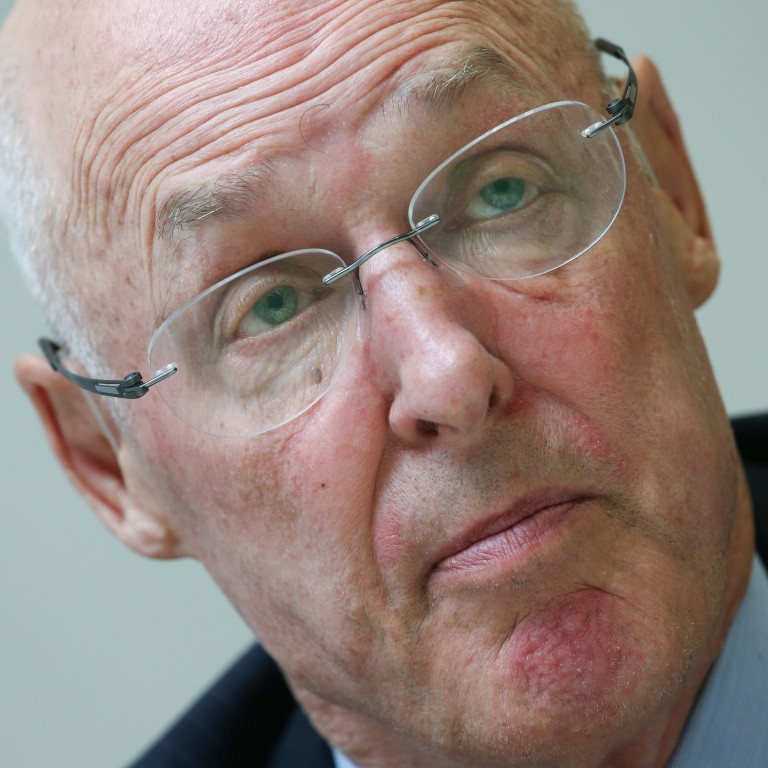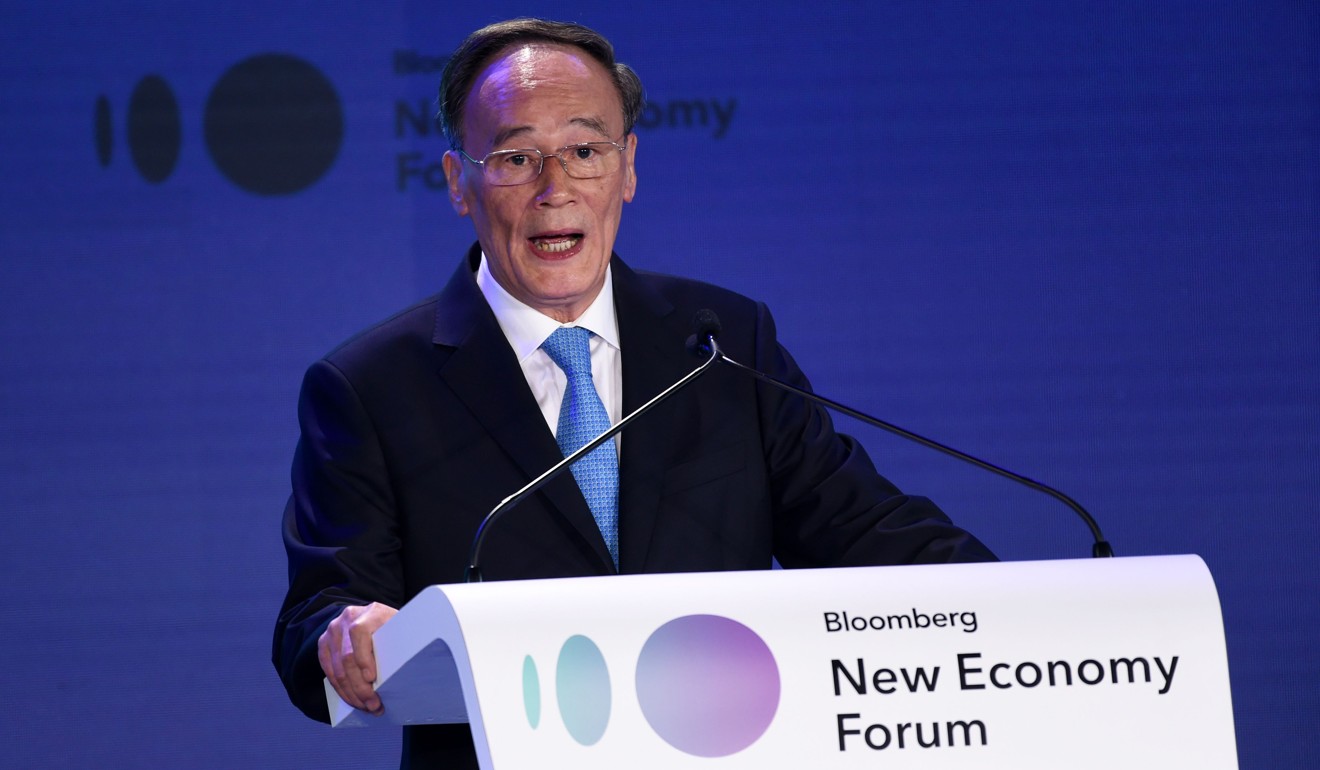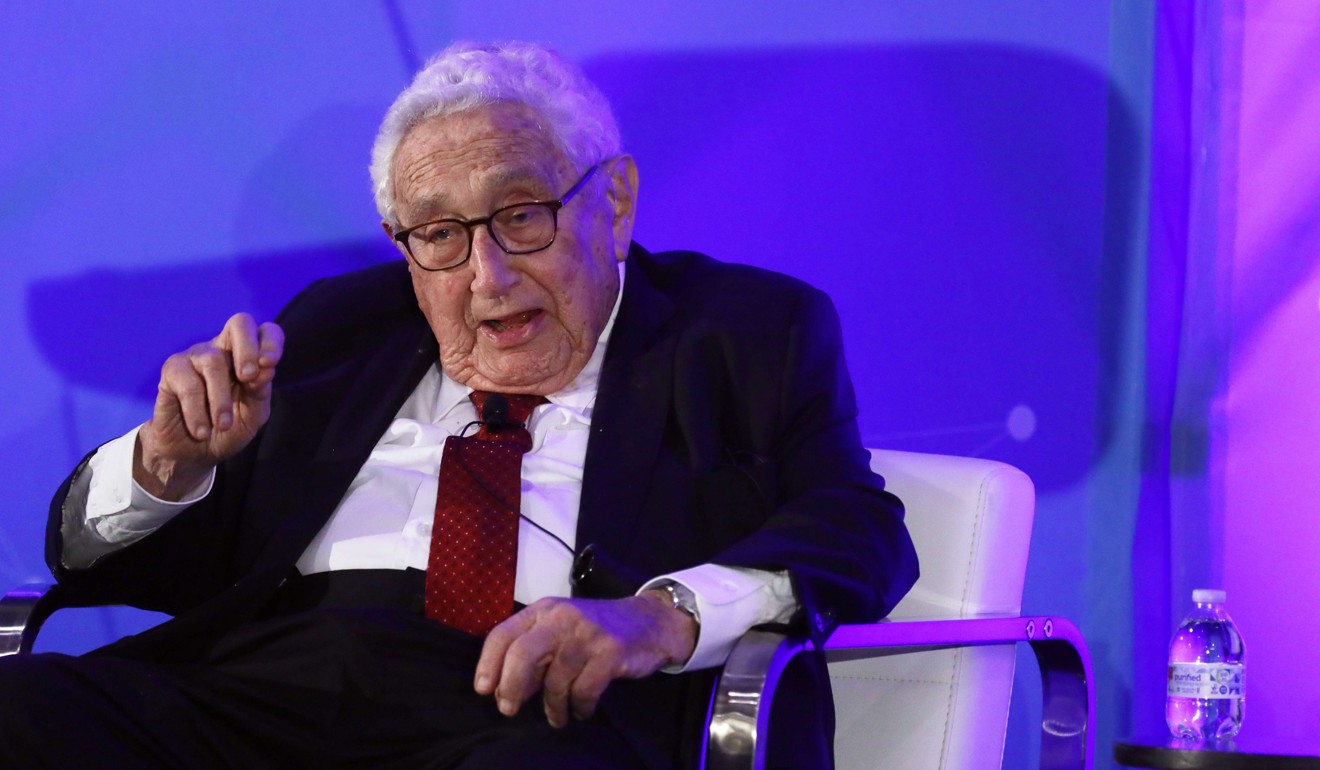
Henry Paulson is hopeful of a US-China trade deal soon, but both sides have to work hard to make further progress on their ties
- Former US Treasury secretary is in Beijing as co-chair of second New Economy Forum, at which executives, government leaders and others discuss global issues
- Paulson says even though he is optimistic of a ‘phase one’ US-China trade deal, issues will remain around structural impediments, SOEs and technology
The US and China will have to work hard on their relations even after they reach a trade deal, as some “structural impediments will remain”, according to former US Treasury secretary Henry Paulson.
“Last year I warned of pressures to decouple in four areas, goods, capital, people and technology, resulting in an economic iron curtain. I’m sad to say that over the past year, pressures to decouple have increased in all four areas, particularly in technology and financial markets,” Paulson, who served during the George W. Bush administration, told the South China Morning Post.
“I am hopeful that before too long both sides will be completing phase one of a US-China trade agreement. But even when this is done, it won’t be the end of the story, as issues will remain around structural impediments, SOEs [state-owned enterprises] and technology to name a few.
“But it would be the first trade deal between the US and China in nearly 20 years. And it is long overdue,” said Paulson.

“Further progress in US-China relations will have to be hard fought and hard won.”
Paulson is the co-chair of the second New Economy Forum taking place in Beijing on Thursday and Friday, which brings together hundreds of executives, government leaders and academics to tackle global issues amid rising geopolitical tensions and fundamental economic shifts.
China’s Vice-President Wang Qishan, a key figure in the trade negotiations with the US, and former US secretary of state Henry Kissinger, are some of the key speakers at the conference.
Their attendance comes at a critical moment in US-China relations, as the more than 15-month-long trade war shows signs of spilling over into disputes over technology, finance and more.
Uncertainty remains over whether a phase one deal will be signed between Beijing and Washington, as US President Trump threatened for the second time in a week to raise tariffs on Chinese imports, while officials say prospects remained “optimistic”.

Meanwhile, the passing of the Hong Kong democracy bill on Tuesday by the US Senate, as the city continues to be wracked by violent anti-government protests, could have the potential to hinder negotiations.
Ian Bremner, founder of US political risk and consulting firm Eurasia Group, said that below the surface there was no trust and very little alignment between the US and China.
“There are big problems and they are getting bigger,” he said, citing intellectual property as an example.
This week’s conference, said Bremner, who is on the forum’s advisory board, “is not about painting things rosy, it’s about trying to dig in and solve it together”.
“When you’re talking about existential changes, like managing the geopolitical coordination of the US and China, or climate change … there are things that require leadership and yet leadership is badly lacking,” he said.
The event also comes amid issues like Brexit, global worries of a pending recession, and a shift in economic power towards emerging economies.
During these times, the conference aims to bring together the most influential leaders in the private sector to build bridges and create alternative discussion channels, according to Justin Smith, chief executive officer of Bloomberg media.
Michael Bloomberg moves his new forum for business elites from China to Singapore due to ‘scheduling conflict’
“If the formal channels are clogged up and not proving effective, then perhaps more informal channels between the global private sector makes more sense,” Smith said.
“The global private sector is taking on a broader sense of responsibilities than it previously had. Where you see the public sector has not been successful in solving issues there is an opportunity for the private sector to step in,” he said.
Organisers had to relocate the forum’s inaugural session last November to Singapore because Chinese authorities did not want it to steal the spotlight from a major import expo, which Beijing used to promote business with the rest of the world amid the trade war with the US.

